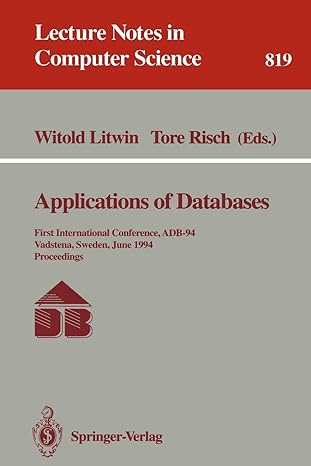Question
Create a function called allButMaxthat expects no arguments. Instead, this function gets its input from the user at the keyboard. The function asks the user
Create a function called allButMaxthat expects no arguments. Instead, this function gets its input from the user at the keyboard. The function asks the user to enter a series of numbers greater than or equal to zero, one at a time. The user types endto indicate that there are no more numbers. The function computes the sum of all the values entered except for the maximum value in the series. (Think of this as dropping the highest homework score from a series of homework scores.) The function then both prints the sum and returns the sum. You may assume the user inputs are valid: they will either be a number greater than or equal to zero, or the string end. Here are some examples of how your function should behave:
>>> allButMax()
Enter next number: 20
Enter next number: 30
Enter next number: 40
Enter next number: end
The sum of all values except for the maximum
value is: 50.0
50.0
>>> allButMax()
Enter next number: 1.55
Enter next number: 90
Enter next number: 8.45
Enter next number: 2
Enter next number: end
The sum of all values except for the maximum value is: 12.0
12.0
>>> x = allButMax()
Enter next number: 3
Enter next number: 2
Enter next number: 1
Enter next number: end
The sum of all values except for the maximum value is: 3.0
>>> print(x)
3.0
>>> allButMax()
Enter next number: end
The sum of all values except for the maximum value is: 0
0
Step by Step Solution
There are 3 Steps involved in it
Step: 1

Get Instant Access to Expert-Tailored Solutions
See step-by-step solutions with expert insights and AI powered tools for academic success
Step: 2

Step: 3

Ace Your Homework with AI
Get the answers you need in no time with our AI-driven, step-by-step assistance
Get Started


